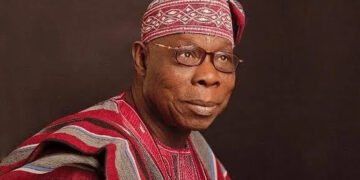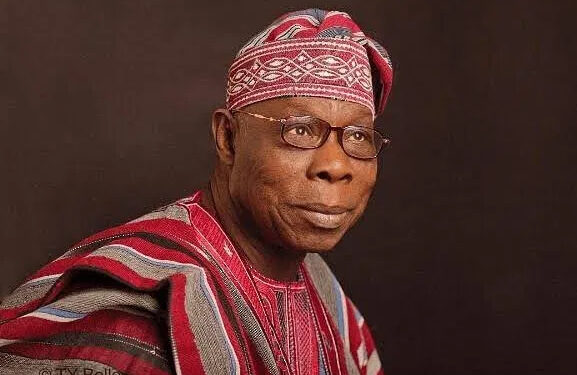By John Ikani
Former Nigerian President Olusegun Obasanjo has called on African countries to reassess the democratic frameworks adopted from Western nations.
According to the elder statesman, “Africa should create a democracy that reflects its cultural heritage and addresses the needs of its people.”
He delivered these remarks at a Summit on the State of Democracy in Africa, held at the Yar’adua Centre in Abuja on Wednesday.
The former Nigerian President, serving as the keynote speaker at the event, stressed the need for “a democratic system that benefits everyone.”
He also urged African leaders to maintain a strong dedication to improving the lives of their citizens.
Obasanjo highlighted that for democracy to thrive in Nigeria and across the continent, “it must rest on the foundations of good leadership, strong institutions, and adherence to the rule of law.”
He defined democracy as governance based on the people’s consent, with a clear, corruption-free mandate, focused on the welfare of the masses.
The Summit was organized by the Olusegun Obasanjo Presidential Library and the Shehu Musa Yar’adua Foundation, with funding from the Ford Foundation and Trust Africa.
The summit examined the successes, challenges, and risks facing democracy in Africa.
Why this matters
Olusegun Obasanjo’s call for African nations to rethink their Western-inherited democracies is vital.
Historically, these systems often ignored Africa’s unique cultural and political contexts, leading to legitimacy and effectiveness issues, as seen in Nigeria’s electoral fraud and Zimbabwe’s unrest.
Obasanjo urges a democracy true to African heritage, focusing on effective leadership, strong institutions, and the rule of law.
Contemporary examples like Rwanda’s growth under President Kagame highlight the benefits of prioritizing public good, while South Africa’s judiciary showcases the importance of robust institutions.
Ghana’s stable democracy, strengthened by the rule of law, further supports Obasanjo’s argument.
His call aligns with decolonization efforts, encouraging African nations to craft practical, responsive democratic systems.
This approach fosters national identity and stability, offering valuable lessons for global democracy.
In essence, Obasanjo’s advocacy is a crucial step towards building democracies that truly serve Africa’s unique needs and contexts.




































